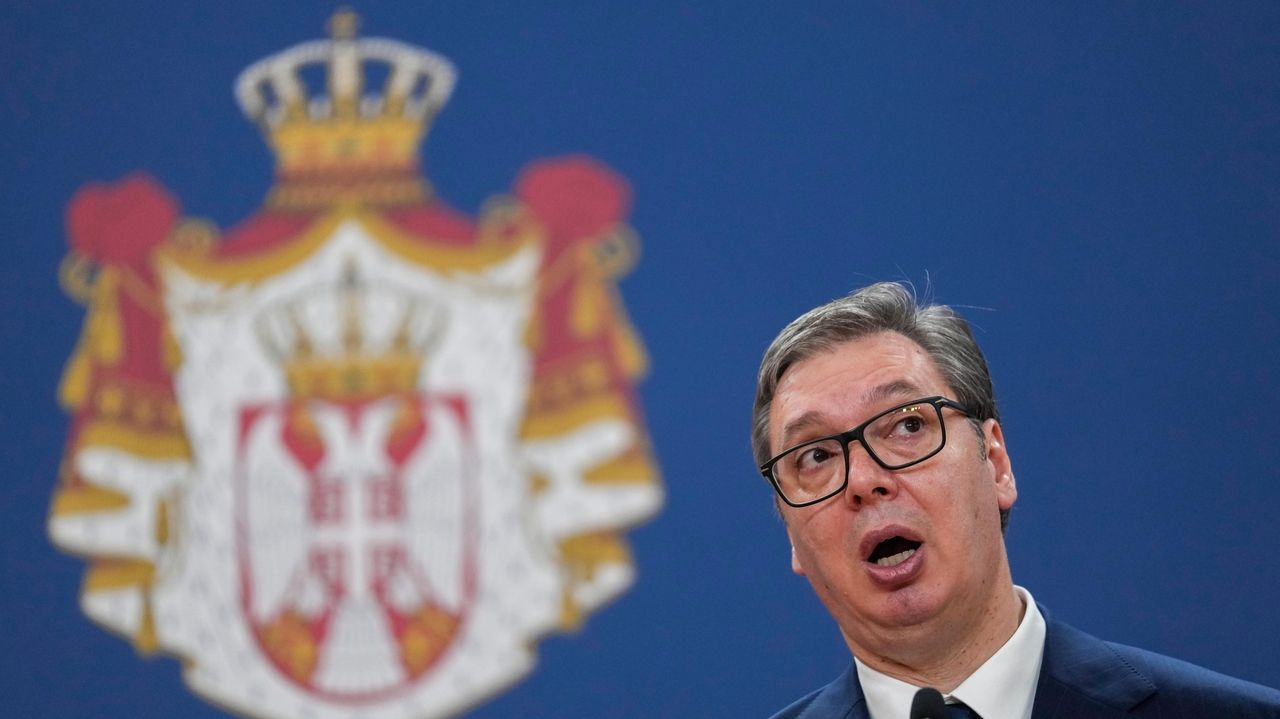BELGRADE, Serbia — Serbia’s president on Thursday accused Kosovo of carrying out “silent ethnic cleansing” of Serbs and said his country will seek a meeting with NATO’s chief and an urgent session of United Nations Security Council to demand their protection.
“Things are out of control,” Aleksandar Vucic said. “Serbian people have been cornered.”
Vucic said he will urge the meeting with NATO Secretary General Jens Stoltenberg next week before requesting the U.N. Security Council session. Serbia could begin unspecified difficult “activities” if the two initiatives produce no results, he warned.
“We have no right to allow further pogrom, persecution or ethnic cleansing of our people,” Vucic said.
Serbia briefly heightened the combat readiness of its armed forces and threatened a military intervention after tensions recently soared in Kosovo between the ethnic Albanian-dominated government and the Serb minority living in northern Kosovo.
Vucic cited recent arrests of Serbs in Kosovo to back his claim of ethnic cleansing by Kosovo authorities, which he described as “planned” and “well-organized.”
The latest flare-up in Kosovo came after police-backed ethnic Albanian mayors took office following local elections in April that were boycotted by Serbs who are demanding implementation of an EU-mediated agreement for self-rule.
Violence then erupted in May between the Serbs and Kosovo police and NATO-led peacekeepers, injuring dozens. It raised fears of a conflict similar to the one in 1998-99, when more than 10,000 people died, mostly ethnic Albanians.
Vucic spoke a day after he met with European Union envoy Miroslav Lajcak, who visited the two countries in an effort to defuse the situation and push forward an EU-mediated dialogue aimed at resolving the dispute.
Also this week, the prime ministers of the Netherlands and Luxembourg traveled to Serbia and Kosovo, urging the easing of tensions. The West fears further instability in Europe as the war…
Read the full article here

Leave a Reply